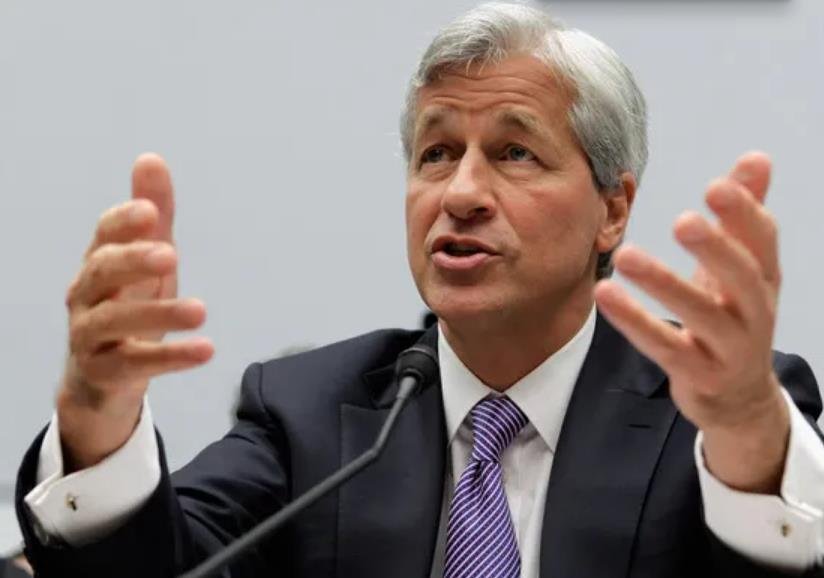JPMorgan Chase CEO Jamie Dimon has criticized the central banks for their inaccurate economic forecasts and their overconfidence in managing the global turmoil. He said that the central banks were “100% dead wrong” in their outlook 18 months ago and that he is cautious about what will happen next year.
Dimon warns against predicting the economy
Speaking at the Future Investment Initiative summit in Riyadh, Saudi Arabia, Dimon said that he does not believe in making definitive economic predictions, but rather preparing for a range of possibilities and probabilities. He said that he has never seen anyone make an accurate economic call and that he is doubtful that the central banks and governments can handle the challenges ahead.

“I want to point out the central banks 18 months ago were 100% dead wrong,” Dimon said, according to multiple media reports. “I would be quite cautious about what might happen next year.”
Dimon also warned that the current situation resembles the 1970s, with high spending and a lot of wastage. He said that fiscal spending is more than it has ever been in peacetime and that there is an “omnipotent feeling” that the authorities can manage through all the issues.
Dimon downplays the impact of Fed rate hikes
Dimon also commented on the monetary policy of the Federal Reserve, which has raised its key interest rate 11 times since early 2022 to combat inflation. He said that he does not think it makes any difference whether the Fed hikes rates another quarter point or not this year.
“I don’t think it makes a piece of difference whether the rates go up 25 basis points or more, like zero, none, nada,” Dimon said. “Whether the whole curve goes up 100 basis points, I would be prepared for it. I don’t know if it’s going to happen, but I look at what we’re seeing today, more like the ’70s, a lot of spending, a lot of this can be wasted.”
The Fed has been under pressure from some market participants and politicians to tighten its policy faster and more aggressively to tame inflation, which has surged to its highest level in decades. The Fed’s preferred measure of inflation, the core personal consumption expenditures index, rose 3.9% year-over-year in September, well above the Fed’s 2% target.
However, the Fed has also faced criticism from others who argue that raising rates too quickly could jeopardize the economic recovery from the pandemic and hurt vulnerable sectors such as housing and consumer spending. The Fed has maintained that inflation is largely transitory and driven by supply chain disruptions and pent-up demand.
The Fed’s latest projections, released in September, showed that most officials expected one rate hike in 2023 and three more in 2024, bringing the fed funds rate to 1.8% by the end of 2024. However, some analysts expect the Fed to revise its outlook upward at its next meeting in November, given the persistent inflation pressures and strong labor market data.
Dimon issues multiple warnings about the economy
This is not the first time that Dimon has expressed his concerns about the state of the global economy and the risks ahead. Earlier this month, when JPMorgan reported its third-quarter earnings, Dimon said that “this may be the most dangerous time the world has seen in decades.”
He cited several factors that could derail the economic growth, such as geopolitical tensions, cyberattacks, climate change, social unrest, and fiscal imbalances. He also said that he expects higher taxes and regulations in the future.
In September, Dimon also warned of a potential scenario where the fed funds rate could rise above 7%, which would have a significant impact on borrowing costs and asset prices. He said that such a scenario could be triggered by a combination of higher inflation, higher government spending, higher deficits, and lower productivity.
Dimon’s views contrast with those of some other prominent business leaders who have expressed more optimism about the economy. For example, BlackRock CEO Larry Fink said last week that he expects a “very strong” fourth quarter and a “very strong” 2024 for the US economy. He also said that he does not see inflation as a long-term problem and that he expects interest rates to remain low for a long time.
